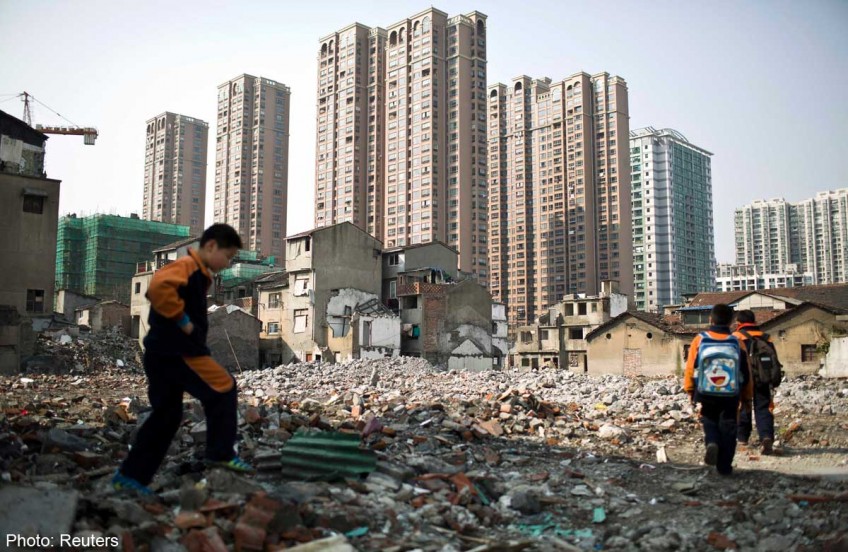100 million Chinese to get greater city benefits

BEIJING - More than 100 million Chinese are to be given vital documents making them officially residents of the country's cities under a broad urbanisation plan that is crucial for economic growth.
China's new leaders under President Xi Jinping who took office a year ago have touted "people-centred urbanisation" to raise the quality of life as well as just growth rates.
The "national plan for a new model of urbanisation" unveiled Sunday calls for measurable improvements such as extended social benefits, improved air quality - an issue that causes widespread public anger - and expanded public transport.
It aims for 60 percent of China's 1.36 billion people to live in cities by 2020 and for 45 percent to have the vital urban residency registration, or "hukou", that gives them equal access to social benefits such as education and health care.
This would compare with 52.6 percent and 35.3 percent as of 2012.
The stated goals include "work hard to achieve 100 million rural workers and other permanent residents obtaining urban hukou".
The change would narrow the proportion of urban residents who lack urban hukous - a move which analysts say is crucial in improving living standards for migrants from the countryside, hundreds of millions of whom have moved to the cities in recent decades.
"Urbanisation is a powerful engine for maintaining the sustainable healthy development of the economy," the plan said.
Rural Chinese, "by becoming urban residents will enjoy better public services, causing the urban consumer pool to continue to expand", it said, calling domestic demand "a fundamental driver of China's economic development".
China's leaders have repeatedly pledged to retool the country's growth model to one driven by consumer demand rather than investment.
But the plan also said urbanisation will "bring huge investment demand for city infrastructure, facilities for public services and housing construction, which will provide continuing power for economic development".
Among many goals, the plan called for 99 percent of migrant children to receive nine years' education, and 95 percent of rural labourers and others struggling to find work to receive free basic job training.
It said 60 percent of cities should meet national air quality standards, up from 40.9 percent in 2010.
The official news agency Xinhua stressed authorities' commitment, saying the plan "will provide strategic and fundamental guidance for the healthy development of urbanisation across the country".